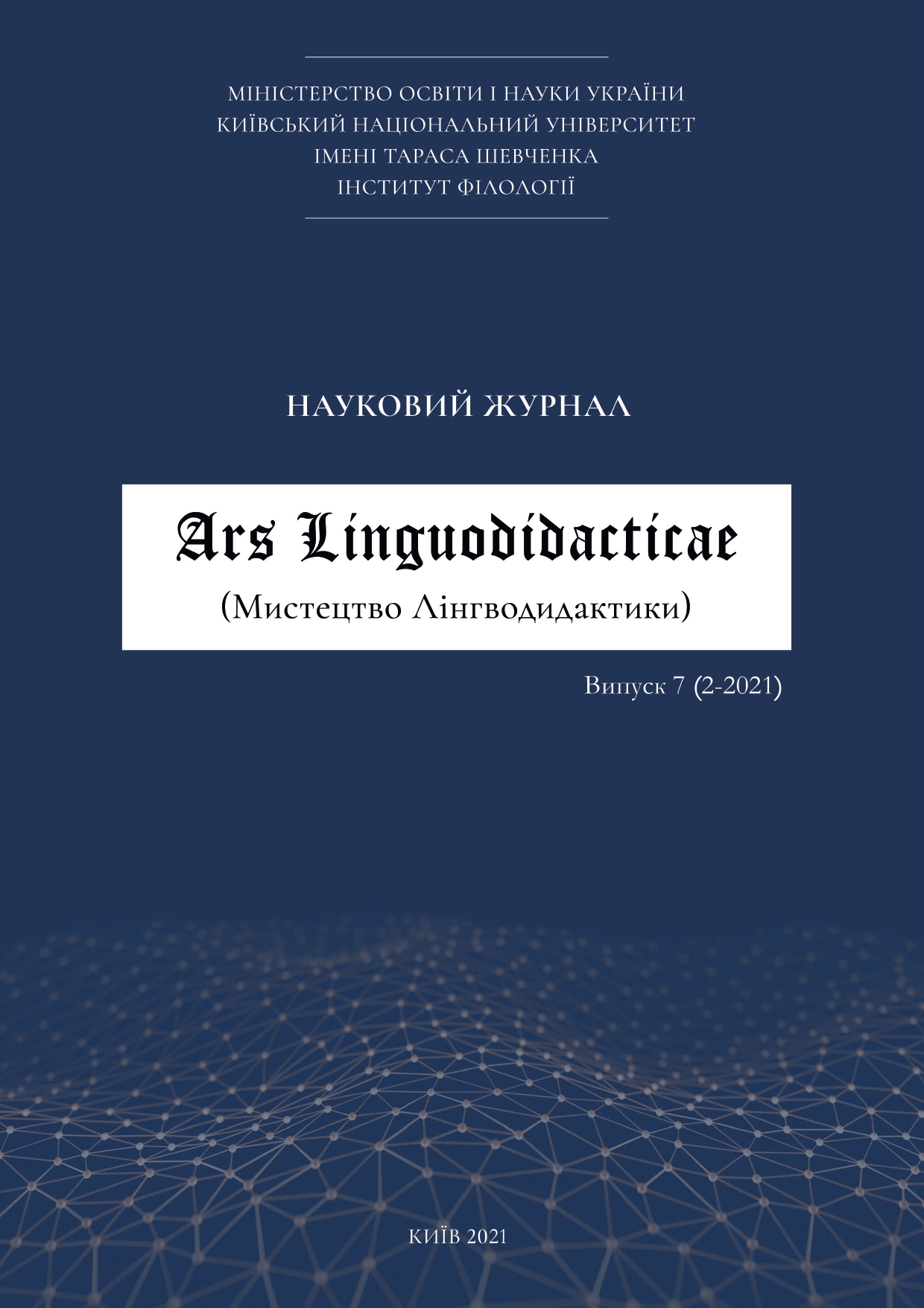BUILDING CRITICAL THINKING SKILLS THROUGH LITERARY TEXTS IN EFL CLASSES
DOI:
https://doi.org/10.17721/2663-0303.2021.7.02Abstract
Background: The chapter argues that building critical thinking skills and enhancing students’ cognitive processes has become a primary goal of teaching in secondary schools. It is generally agreed that the relationship
between learning and reading literature has always been very close. Also, literature is widely recognised as
an effective, motivating and enjoyable facilitator for work on critical thinking skills through challenging students’
cognitive processes by means of comparing and contrasting of and differentiating between the specific events
of the plot, analysing main characters, interpreting the meaning created by the author’s choice of words etc. For
these reasons this chapter investigates the efficacy of literary texts in building critical thinking skills in secondary
schools.
Purpose: The main focus of the chapter was on designing effective and feasible critical thinking model of
teaching instruction that incorporates literary text in EFL classroom to stimulate students’ cognitive processes.
Results: Many methods have been suggested to teaching reading literary texts. For the purpose of this
study the authors adopted personal growth model developed by Lindsay Clanfield. The model draws heavily on
learners’ involvement in reading with the aim of explaining the implied message of the literary text through employing crucial critical thinking skills such as problem solving, decision making, interpretation, logical reasoning,
and metacognition. The critical thinking model consists of the three stages defined as “challenge – comprehension – reflection”. Each of the defined stages focuses on utilising some of the six levels of Bloom’s taxonomy of
cognitive learning objectives through activities that promote these cognitive processes. For example, to complete
activities of the ‘challenge’ stage students rely heavily on their knowledge; cognitive levels of comprehension,
application and synthesis are essential at the ‘comprehension’ stage; finally, at the ‘reflection’ stage students
are involved in evaluation ideas of moral and social aspects discussed in the text and appraising of their acquired
experience. Drawing on this conclusion, the article presents a practical implementation of the model with the focus
on cognitive processes and development of critical thinking skills in teaching English through literary texts.
Discussion: In further research, it is necessary to experimentally verify the effectiveness of the critical thinking model in building critical thinking skills through literary texts in EFL classes.
Key words: Critical thinking skills, literary texts; personal growth model
Downloads
Published
How to Cite
Issue
Section
License

This work is licensed under a Creative Commons Attribution-ShareAlike 4.0 International License.
This work is licensed under a Creative Commons Attribution-NonCommercial 4.0 International License.
Copyright policy according to the terms of the license: Creative Commons "Attribution-NonCommercial" 4.0 International (CC BY-NC 4.0).
Authors who publish their articles in "Ars Linguodidacticae" (Open Access Journal) retain the following rights:
- The authors retain the copyright of their article and grant the Ars Linguodidacticae journal the right to first publish the manuscript of their article under the Creative Commons (CC BY-NC 4.0) Attribution License, which allows others to freely distribute the published work with mandatory reference to the author of the original work and first original publication in the Ars Linguodidacticae journal. An indication of the retention of the copyright of the work is provided on the title page of the article.
- The authors reserve the right to enter into separate contracts for the non-exclusive distribution of their article as published in Ars Linguodidacticae (e.g., placing the article in electronic libraries, archives and catalogs or publishing it as part of institute collections and monographs), provided that a full reference to the first original publication in Ars Linguodidacticae is given.
- The policy of the "Ars Linguodidacticae" journal allows and encourages authors to post a manuscript both before and during editorial processing, as this promotes productive scientific discussion and has a positive effect on the speed and dynamics of citing the article.
The editorial board reserves publishing rights to:
- the collated original articles and to the entire issue of the journal.
- the design of the journal and original illustrative and supplementary materials.
- the reprint reprints of the Journal in printed and electronic form.
The copyright policy is carried out according to the terms of the license: Creative Commons "Attribution-NonCommercial" 4.0 International (CC BY-NC 4.0).
For more information, please read the full text of the CC BY-NC 4.0 Public License.
Creative Commons Attribution-NonCommercial 4.0 International License.


